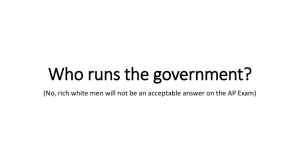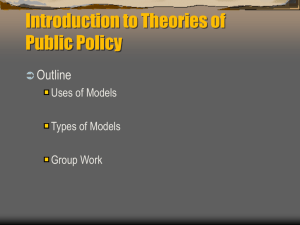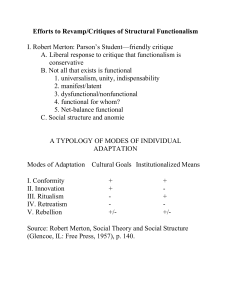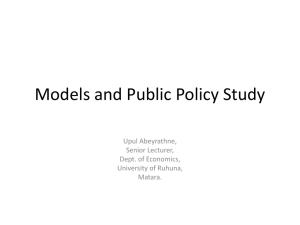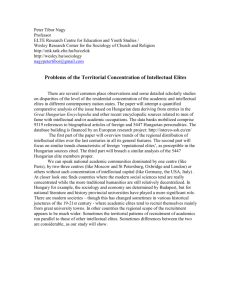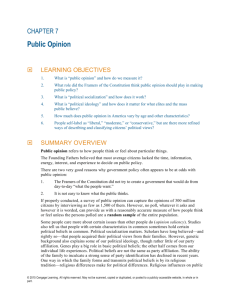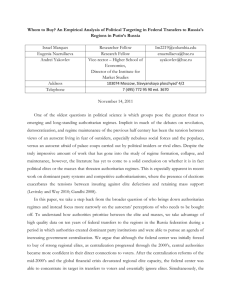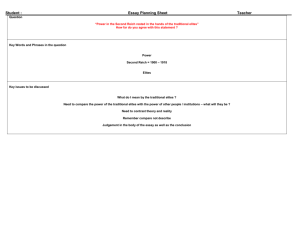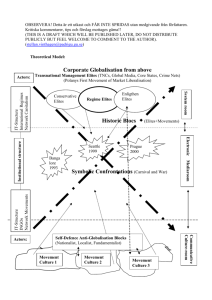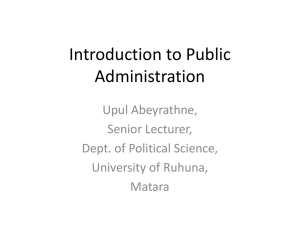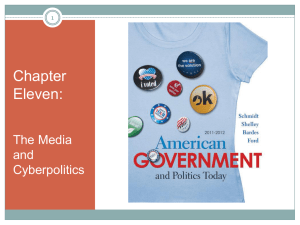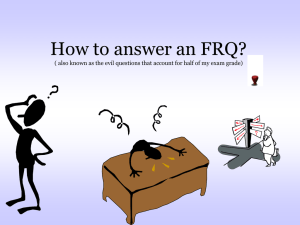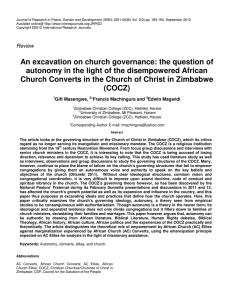Four Theories of Governing Elites
advertisement
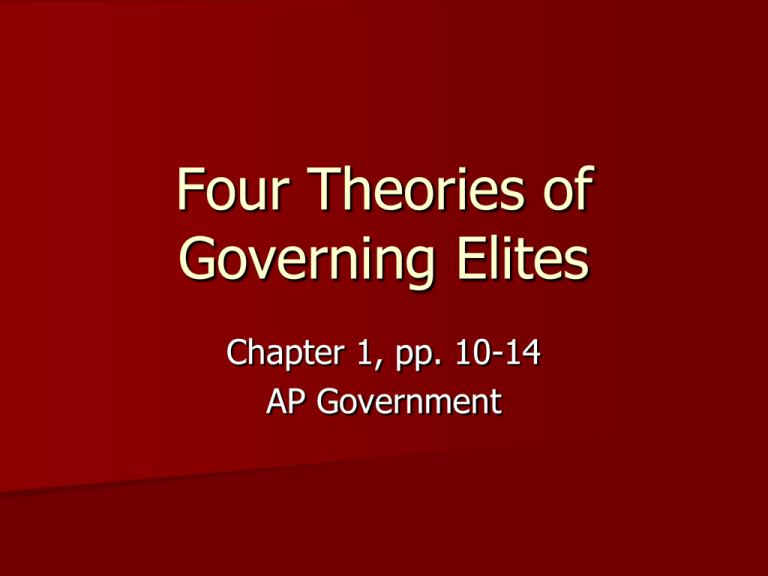
Four Theories of Governing Elites Chapter 1, pp. 10-14 AP Government How is political power distributed? Majoritarian politics: Concept where nearly everyone has a say in making a decision (Will of the majority) Elitist politics: Concept where decisions are made by groups with a disproportionate amount of some valuable resource How is political power wielded? When do majoritarian politics prevail? – Why? When do elitist politics prevail? – Why? Are there groups you feel have too much power? – Examples? – Is their authority legitimate? Explaining Influence of Elites Class View (Karl Marx): • Government is influenced by economic elites-those who control the economy, control the government. • • • • “He who pays the piper, calls the tune.” In the U.S., capitalists dominate the economy and therefore government. Decisions benefit the business owners and capitalists. Proof? Examples? Explaining Influence of Elites Elitist Power (C Wright Mills): • • • • Tied to those in government making decisions based on political favors Coalition of corporations, military, and government officials dominate political power & make decisions on their behalf--iron triangles Many add media chiefs & labor officials to coalition—issues network Proof? Examples? Explaining Influence of Elites Bureaucratic (Max Weber): • • • • Government power is in the hands of a small group of bureaucrats (civil servants) who translate law into policy. Bureaucrats enforce policies according to their own guidelines. Bureaucrats are hired for expertise but rarely fired for incompetence. Proof? Examples? Explaining Influence of Elites Pluralist: • No single elite dominates politics; resources are too widely spread out; too many institutions – Many groups compete with each other for control over policy – Policy is the outcome of political haggling, compromise, & shifting alliances among groups – Hyper-pluralism: “pluralism gone sour” There are so many groups that have power, that government is weakened and unable to act. Proof? Examples? Is Democracy Driven by SelfInterest? Arguments for? Is capitalism necessary for democracies to be successful? Arguments against? Do elites ever act for common good? Should we all be cynical or at least skeptical of politicians? Who governs? To what ends? Structures of government Forms of democracy Majoritarian vs. Elitist decisions 4 theories of elitist power Greed, power, selfishness—oh my! Test Taking Tips for AP Success There are two sections to the AP Gov. test The first part is a multiple-choice section. – Consists of 60 questions (My test are 50) – Answered in 45 minutes (My test is 40 min.) – Each question has five answer choices – Some include charts, graphs, tables, cartoons – No guessing penalty Go over hints & examples on sheet. Test Taking Tips for AP Success The 2nd section consists of Free Response Questions (FRQ). – There are 4 separate FRQ prompts (My test has 2) – Have 100 minutes to complete all 4 prompts (My test allows 40 minutes) – Always number, letter and label like the FRQ – These FRQs are NOT essay questions! – You do not need intro or conclusion—just answer each question Go over hints and examples on sheet. Assignments Study for your test on Tuesday, 9/3. Notes will be collected at the end of the testing session. Assignments will be posted on board after test & on my website. Assignment will be due Thursday of next week. Hand out is available today. Blog due by midnight tomorrow. Test-taking tips are already posted on my website.
